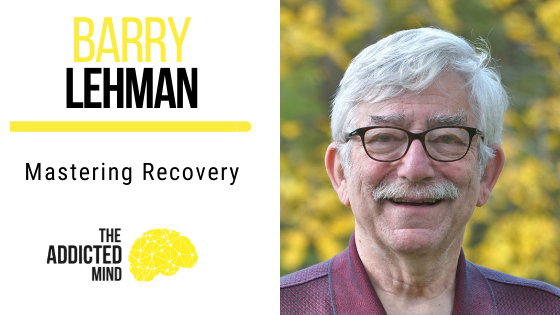Getting through the first two years of recovery can be extremely difficult. Just when you think you’ve gone as far as you can go, you realize you’re only at the beginning. You need to develop the skill set to master recovery and live your best life.
On today’s episode, Duane speaks with Barry Lehman about achieving long-term recovery or recovery after the first two years of sobriety. They specifically talk about what that looks like and how we can gain mastery so we can live our best life and find joy and happiness in recovery.
Barry is a retired pastor and has been sober for 33 years now. While he was in ministry as a parish pastor, he discovered he was an alcoholic. He went into a treatment program and stayed in the ministry for another 11 years after getting sober. He also got his Doctor of Ministry in Counseling and got his license as an Alcohol and Drug Counselor which he has served as part-time for 28 years now.
Through his recovery journey, Barry learned how to be healthy and he now hopes he can share his story with others. In his book, Mastering Recovery, Barry talks about long-term recovery. He realized that the nitty-gritty of staying sober for more than two years isn’t talked about enough.
When you’re in recovery, everything changes drastically. You have to find out how to live again and that’s not easy. In your first two years of recovery, you learn how to go about normal life and enjoy various occasions without alcohol. However, once you hit the third year, you can’t just go on doing things you used to do and just try doing them sober. If that’s all you do, you’ll end up having lots of cravings as well as mental and emotional relapses.
In this episode, you will hear:
- Why Barry wrote the book Mastering Recovery
- What mastery really is
- Practice as the path to mastery
- How to do a personal inventory
- Trauma-informed treatment
- Finding meaning and purpose
- Building a recovery-positive list
Key Quotes:
[07:44] – “The real nitty-gritty down and dirty way of staying sober beyond two years isn’t very often talked about.”
[12:29] – “Getting better at something important to you. – that’s what mastery is.”
[12:56] – “That’s the path of mastery, keep practicing… When you think you’ve come to the end, you’re only just beginning.”
[18:42] – “Trauma-informed treatment, while it’s a buzzword, it’s also very real.”
[20:25] “Learning about movement, learning about exercise, is a big step that many of us need to take at that two-year mark, if not before.”
[27:50] – “Even when you’re angry and upset, or frustrated, you begin to learn how to deal with those. And that’s part of the practice.”
[29:45] – “I got to have that awareness of myself and my world of who I am. That’s long-term recovery.”
[31:42] – “If you’re lucky enough to have good people around you, who have been through good treatment and good therapy, you’ll be able to lay down the stepping stones that will keep you growing in that area.”
Subscribe and Review
Have you subscribed to our podcast? We’d love for you to subscribe if you haven’t yet.
We’d love it even more if you could drop a review or 5-star rating over on Apple Podcasts. Simply select “Ratings and Reviews” and “Write a Review” then a quick line with your favorite part of the episode. It only takes a second and it helps spread the word about the podcast.
If you really enjoyed this episode, we’ve created a PDF that has all of the key information for you from the episode. Just fill in your information below to download it.

